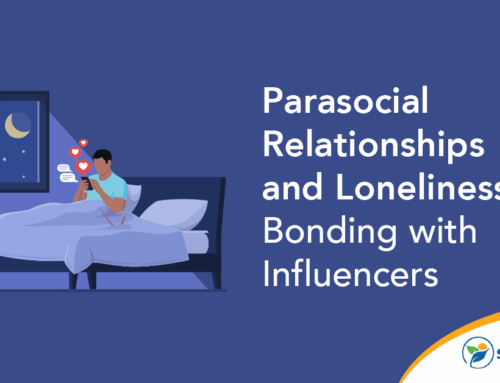If you spend any time on social media, you’ve probably seen posts about narcissism. The term is thrown around frequently to describe demanding, self-absorbed individuals, but what is a narcissist, and is there a difference between narcissistic personality disorder and malignant narcissists? Narcissistic personality disorder has a strict definition, but there’s no official diagnostic criteria for a “malignant narcissist.” In this guide, we’ll define narcissistic personality disorder and explain the traits of malignant narcissism to help people understand the disorder and how it impacts people’s relationships.
What Is Malignant Narcissism?
Mental health professionals define narcissistic personality disorder as a mental health condition in which someone has an unreasonably high sense of their own self-importance and a strong desire to get attention from or be admired by others. It’s thought that around 5% of the population is affected by narcissism to some degree.
The term “malignant narcissist” was coined to describe people with narcissistic personality disorder who are willing to manipulate or harm others to achieve their goals.
Is Malignant Narcissism a Clinically Recognized Diagnosis?
Malignant narcissism isn’t an official diagnosis, but it’s commonly thought of as a severe form of narcissistic personality disorder that can be characterized by harmful or manipulative behavior. Narcissistic individuals possess several traits that can make them challenging to maintain a close relationship with, and those who have what’s now referred to as malignant narcissism can be even more difficult to maintain boundaries with.
Traits That Define Malignant Narcissism
Some of the key traits to look out for when considering whether a person could be a malignant narcissist include:
- Grandiosity. Individuals with narcissistic personality disorder will typically display an overdeveloped sense of their own importance. They require constant attention and believe themselves to be unique, highly skilled and more intelligent than others. A narcissistic individual craves admiration and respect, and this is also evident in those who have malignant narcissism.
- Manipulative behavior. If a malignant narcissist doesn’t receive the treatment they crave, they may turn to manipulative behavior to get it. This can include flattery and charm or more deceitful methods. They’ve been engaging in this type of behavior for most of their lives and may be skilled at earning the trust or admiration of others. Some malignant narcissists are subtle in their efforts, but others are willing to use more obvious methods, ignoring the social consequences.
- Low empathy. A malignant narcissist may seem uncaring or indifferent to the emotions of others. This ties back to their sense of self-importance. They genuinely believe the feelings and needs of others are less important than their own.
- Aggressive behavior. When a malignant narcissist feels slighted, they may lash out either verbally or physically. Those in a relationship with a malignant narcissist might experience emotional abuse because the narcissist responds vindictively when their ego feels threatened. Some malignant narcissists take pleasure in causing emotional or physical pain to those around them because this gives them a feeling of power over their victims.
- Paranoia and a need for control. In some cases, malignant narcissists feel paranoid that those around them have ulterior motives or are conspiring against them. They’re hypersensitive to even small criticisms and view them as a slight against them. Because of this, they feel a desire to control everything around them.
- Impulsive behavior. Rash and reckless decision-making is a common trait in malignant narcissists. These individuals rarely consider the consequences of their actions. They’ll pursue things they want or need without regard for others and respond poorly if anyone tries to hold them accountable for their behavior. It’s common for malignant narcissists to either deny being at fault for their actions, attempt to deflect the blame onto those around them or gaslight people to avoid accountability.
- Difficulty maintaining relationships. While the ability to flatter or charm people makes it easy for malignant narcissists to build short-term relationships, the other traits they exhibit mean they often struggle to maintain those relationships. They often seek out new people to use and discard those relationships when things become challenging.
What Is a Narcissist and How Does Malignant Narcissism Differ From NPD?
Narcissistic personality disorder is listed in the Diagnostic and Statistical Manual of Mental Disorders, Fifth Edition (DSM-5) and defined by grandiosity and a need for attention and admiration. Malignant narcissism doesn’t have a formal definition and isn’t a medical diagnosis. However, it’s generally understood to be an extreme form of narcissism that’s characterized by harmful behaviors.
Narcissism’s Impact on Relationships and Mental Health
Individuals who are diagnosed with NPD, even in a mild form, often find it difficult to maintain long-term relationships. This problem is even more pronounced for those who meet the informal definition of malignant narcissism because the aggressive and paranoid behaviors they engage in can drive away even close relatives, leaving the narcissist with little to no support network.
Those living with malignant narcissism are at increased risk of other mental health difficulties and may engage in destructive behaviors such as substance abuse to cope with their feelings of isolation or injury to their egos. The lack of a support network can cause these behaviors to spiral, further impairing their mental health.
Can Malignant Narcissism Be Treated?
Many individuals living with malignant narcissism don’t recognize that they have an issue. If so, they’re unlikely to engage with treatment. However, some malignant narcissists do acknowledge the difficulties they’re having. This may be because they’re struggling to maintain meaningful relationships or because they’re experiencing other mental health struggles or substance abuse and decide to seek support for those issues and pursue help for their NPD at the same time.
If a malignant narcissist is willing to engage with treatment, they can learn to manage their emotions and behaviors and build meaningful relationships. However, this takes time, patience and sincere effort.
Healthy Relationships Are Possible With Support
Working with a skilled therapist is key to learning the coping mechanisms required to build healthy relationships and manage narcissistic traits. Our compassionate team of mental health experts is here to help you on that journey. Contact Sunlight Recovery today to talk to our admissions team and learn how we can help with NPD and malignant narcissism.







